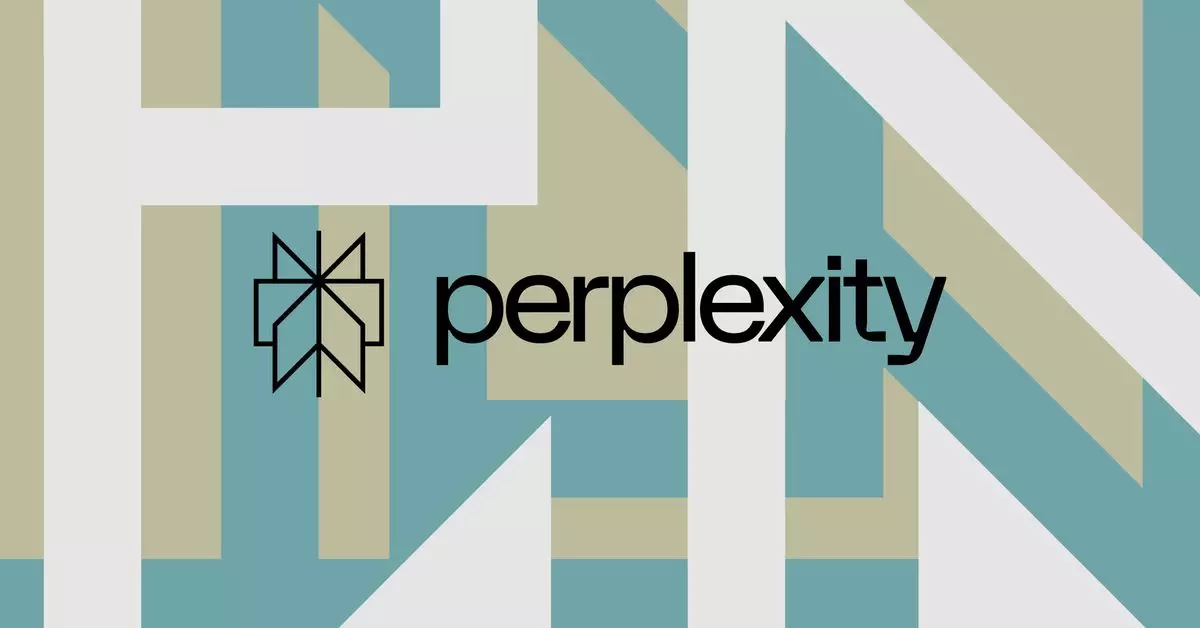The rise of artificial intelligence in recent years has triggered a multitude of debates regarding intellectual property laws, particularly in relation to how AI companies utilize publicly available information. One such case currently capturing attention is the legal clash between AI startup Perplexity and News Corp, the media conglomerate that encompasses notable publications such as the New York Post and The Wall Street Journal. This conflict underscores significant implications for the future of journalism, AI technology, and the ownership of information in the digital age.
At the heart of the controversy lies News Corp’s lawsuit against Perplexity, which claims that the AI company’s search engine has unscrupulously replicated copyrighted content without authorization. The lawsuit articulates serious allegations, suggesting that Perplexity not only reproduces significant amounts of proprietary material but also presents these excerpts in a way that resembles the originals closely enough to disorient readers into believing they are consuming an approved version of the news. This accusation isn’t isolated; previously, Forbes leveled comparable claims against Perplexity, indicating that this is not merely a singular dispute but rather emblematic of a larger issue that has the potential to affect the entire tech and media landscape.
In response, Perplexity has pushed back firmly, positing that corporations like News Corp are attempting to monopolize the ownership of facts—something they argue should be collectively available to all. The company’s blog post accentuates a perspective that suggests a growing rift between traditional media outlets and emerging technology firms. Perplexity advocates for a more collaborative approach, citing its revenue-sharing initiative with established publications such as Time and Fortune as a demonstration of its commitment to supporting journalism.
This legal tussle raises essential questions about the boundaries of copyright law and its applicability to the rapidly evolving domain of AI. While facts themselves cannot be copyrighted, the manner in which they are presented—what is known as “expression” in legal terms—can be protected. This creates a complicated grey area where AI technologies, which often aggregate and reference numerous data points from across the internet, may unintentionally infringe on these boundaries.
News Corp has voiced reiterative concerns, framing Perplexity as engaged in “intellectual property abuse” that has damaging repercussions for journalists and the integrity of content creation. This rhetoric reflects a broader apprehension in the media industry regarding the sustainability of journalism in an increasingly automated and AI-driven world. The fear is palpable: if AI systems can abstract and replicate content at unprecedented rates, what does that mean for those who craft and curate the news?
Perplexity’s assertive stance on its operational methods and its push against the lawsuit highlights a paradigmatic shift in how companies may approach AI development in the future. The company argues that the disputes signify a detrimental rivalry that is “fundamentally shortsighted.” By reinforcing its desire to build partnerships rather than ignite legal battles, Perplexity embodies a vision where AI development and journalism can coexist harmoniously rather than antagonistically.
However, the impact of these legal battles extends beyond just the companies involved. The ongoing tensions could set legal precedents that shape the landscape of AI utilization in relation to content generation and distribution. As AI technologies become more prevalent, the industry will have to reconcile the legal obligations of content ownership with the innovative capabilities these technologies can offer.
The conflict between Perplexity and News Corp epitomizes the complex dynamics at play between technology and traditional media in the digital age. As AI systems become increasingly integrated into our daily lives, the discourse surrounding their ethical use and the implications on intellectual property rights will undoubtedly intensify. Both sides must navigate this landscape thoughtfully, seeking a balance that allows AI to flourish while safeguarding journalistic integrity. The ongoing negotiations between these sectors could ultimately determine the principles that will govern AI, journalism, and information access for generations to come.


Leave a Reply
You must be logged in to post a comment.